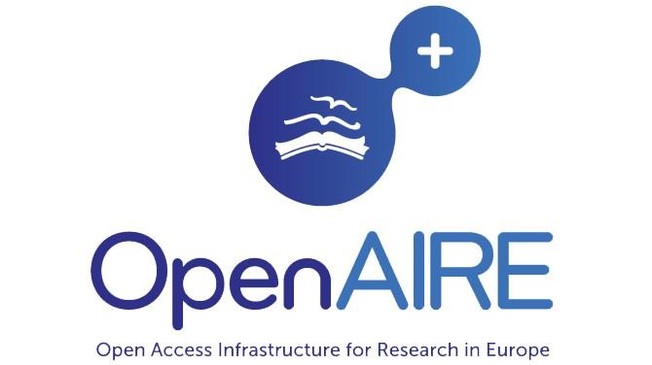E-LEARNING GAMIFIKASI PADA MATERI PEMANASAN GLOBAL
DOI:
https://doi.org/10.21009/03.1102.PF26Abstract
Abstrak
Ketertarikan terhadap game dapat dijadikan sebagai salah satu strategi penyampaian pembelajaran kepada siswa. Salah satu cara penyampaian pembelajaran yang dapat menerapkan beberapa elemen-elemen yang dimiliki game adalah e-learning berbasis gamifikasi. Gamifikasi adalah implementasi berbagai desain dan elemen game ke dalam konteks non-game yang mengacu pada proses peningkatan pengalaman pengguna untuk meningkatkan partisipasi, motivasi, dan minat pengguna untuk tujuan tertentu. Penelitian ini bertujuan untuk menghasilkan e-learning berbasis gamifikasi pada materi pemanasan global. Penelitian ini menggunakan metode research and development dengan model ADDIE. Data yang diperoleh pada penelitian ini adalah data kuantitatif yang berupa skor (angka) dan data kualitatif berupa saran atau kritik. Pembuatan e-learning tentunya memerlukan sebuah platform yang mendukung. Salah satu platform yang dapat digunakan untuk mengembangkan e-learning berbasis gamifikasi adalah Gamilab. Hasil dari penelitian ini berupa e-learning gamifikasi pada materi pemanasan global yang di dalamnya terdapat konten materi pemanasan global, kuis, dan ulangan harian yang disajikan dalam bentuk papan permainan petualangan menggunakan elemen permainan seperti level, skor, bintang, dan papan peringkat. Penambahan gamifikasi sebagai metode yang modern akan membantu menghasilkan e-learning yang lebih menarik bagi siswa.
Kata-kata kunci: e-learning, gamifikasi, pemanasan global, gamilab.
Abstract
Interest in games can be used as a strategy for delivering learning to students. One way of delivering learning that can apply some of the elements of a game is gamification-based e-learning. Gamification is the implementation of various game designs and elements into a non-game context which refers to enhancing user experience to increase user participation, motivation, and interest for a specific purpose. This study aims to produce gamification-based e-learning on global warming material. This research uses the research and development method with the ADDIE model. The data obtained in this study are quantitative data in the form of scores (numbers) and qualitative data in the form of suggestions or criticisms. Making e-learning certainly requires a platform that supports it. One of the platforms that can be used to develop gamification-based e-learning is Gamelab. The results of this study are e-learning gamification on global warming material in which there is global warming material content, quizzes, and daily tests presented in the form of an adventure game board using game elements such as levels, scores, stars, and leaderboards. Adding gamification as a modern method will help produce e-learning that is more attractive to students.
Keywords: e-learning, gamification, global warming, gamilab
References
[2] F. Bányai, M. D. Griffiths, O. Király, Z. Demetrovics, “The psychology of esports: A systematic literature review,” Journal of Gambling Studies, vol. 35, no. 2, pp. 351-365, 2019.
[3] J. B. Rachman et al., “Esport Sebagai Sumber Soft Power Indonesia: Sosialisasi Kepada Anak Muda,” Jurnal Pengabdian kepada Masyarakat, vol. 3, no. 1, pp. 43-52, 2020.
[4] L. Aloia, A. A. Vaporciyan, “E-learning trends and how to apply them to thoracic surgery education,” Thoracic surgery clinics, vol. 29, no. 3, pp. 285-290, 2019.
[5] M. S. Kuo, T. Y. Chuang, “How gamification motivates visits and engagement for online academic dissemination–An empirical study,” Computers in Human Behavior, vol. 55, pp. 16-27, 2016.
[6] R. Haryadi, H. Pujiastuti, “The Effectiveness of Using Serious Games to Improve Physics Learning Outcomes in Light Concept,” Jurnal Penelitian & Pengembangan Pendidikan Fisika, vol. 6, no. 2, pp. 153-162, Dec. 2020.
[7] A. N. Saleem, N. M. Noori, F. Ozdamli, “Gamification Applications in E learning: A Literature Review,” Technology, Knowledge and Learning, vol. 27, no. 1, pp. 139-159, 2022.
[8] H. Haerullah, E. Elihami, “Dimensi Perkembangan Pendidikan Formal dan Non Formal,” Jurnal edukasi nonformal, vol. 1, no. 1, pp. 199-207, 2020.
[9] Gamilab, “Everything is More Fun with Games,” Gamilab, 2016, [Online]. Available: . https://gamilab.com/.
[10] D. Muliyati, R. Milenia, R, R. Fahdiran, “Elektrotektif: An Educational Game to Explore Electricity Concept Using Case-Based Learning,” Jurnal Penelitian & Pengembangan Pendidikan Fisika, vol. 8, no. 2, pp. 283-292, 2022.
[11] A. M. Toda et al., “An approach for planning and deploying gamification concepts with social networks within educational contexts,” International Journal of Information Management, vol. 46, pp. 294-303, 2019.




